01 Feb2022
By Nicole Dunn

Join AACTE in celebrating Black History Month by sharing your favorite resources for teaching Black history at the Ed Prep or PK-12 level. AACTE will compile this shared knowledge as a toolkit for teaching Black history every month of the year. Please take a moment to share your resources.
This post is the first of AACTE’s weekly Black History Month 2022 Blog series to celebrate members’ essential efforts to increase the representation of Black History in America’s schools. As a kickoff to the celebration, AACTE is releasing, for a limited time to the public, a recording of AACTE’s 2021 Annual Meeting Deeper Dive session, The 1619 Project.
Founding director of the Smithsonian’s National Museum of African American History and Culture, Lonnie Bunch, describes the museum as a place that “transcends the boundaries of race and culture that divide us and becomes a lens into a story that unites us all.” That is a powerful statement, and one AACTE and its members strive to emulate as it celebrates Black History, not just this month, but every day as AACTE advocates for curriculum and policies that are representative of the country’s diverse history.
Black History Month began as an effort to increase the representation in history classes of Black people’s contributions to America’s society, culture, and progress as a nation. Its origin lies in the thesis of Carter G. Woodson. According to an adaption of the National Museum of American History’s blog exhibit on Dr. Woodson, he was challenged by his dissertation advisors, who, according to Dr. Woodson, cautioned him time and again not to “undertake research that the Negro had a history.” Woodson knew that education is essential to social change — and AACTE honors that as part of its mission.
28 Jan2022
By Jacqueline Rodriguez
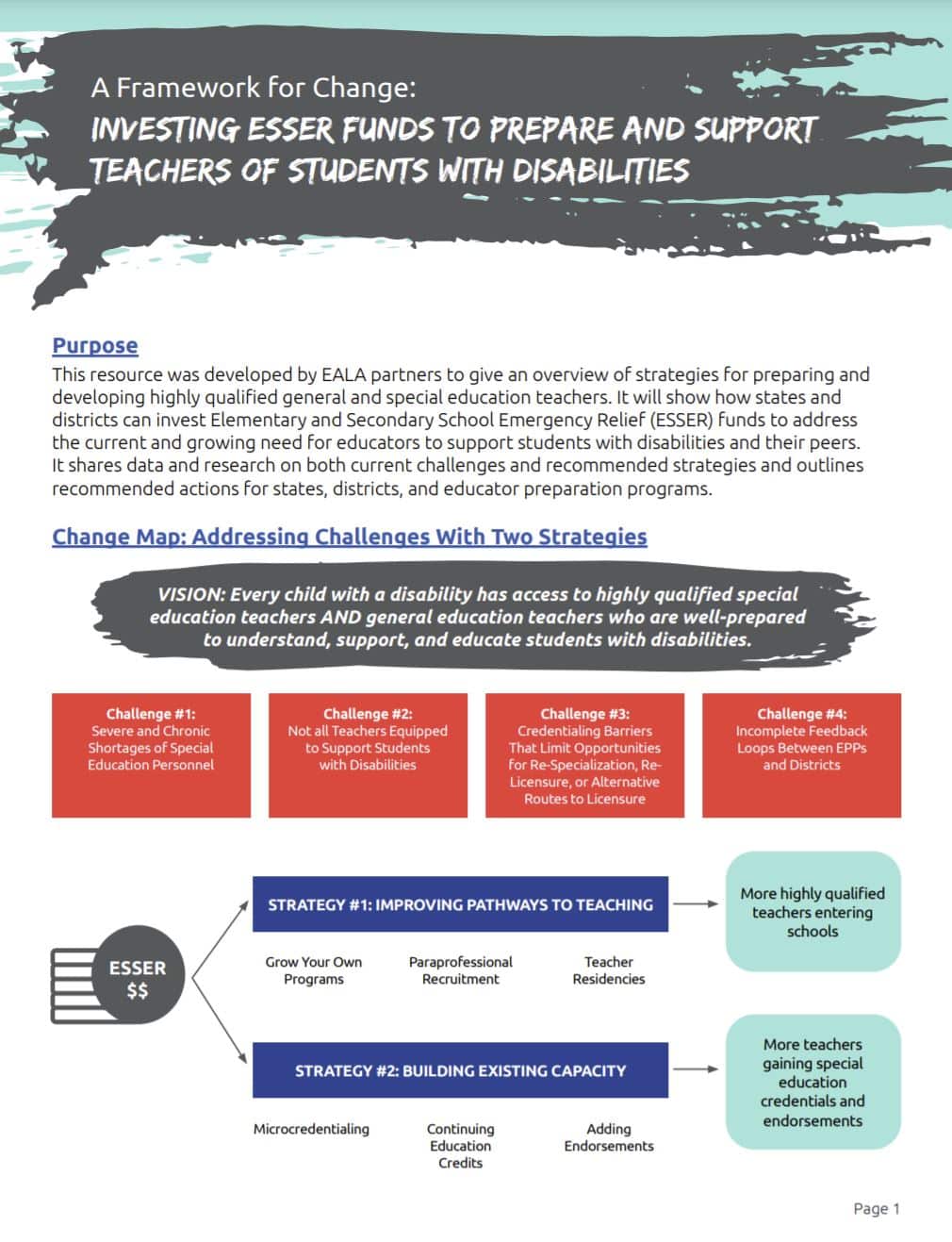 AACTE joined the Educating All Learners Alliance (EALA) in 2020 as the pandemic gave rise to the growing challenges to teaching students with learning differences online. The Alliance steadfastly supports PK-20 students through resource development, including the newest resource: A Framework for Change: Investing ESSER Funds to Prepare and Support Teachers of Students With Disabilities.
AACTE joined the Educating All Learners Alliance (EALA) in 2020 as the pandemic gave rise to the growing challenges to teaching students with learning differences online. The Alliance steadfastly supports PK-20 students through resource development, including the newest resource: A Framework for Change: Investing ESSER Funds to Prepare and Support Teachers of Students With Disabilities.
This resource was developed by EALA partners to give an overview of strategies for preparing and developing highly qualified general and special education teachers. It will show how states and districts can invest Elementary and Secondary School Emergency Relief (ESSER) funds to address the current and growing need for educators to support students with disabilities and their peers. It shares data and research on both current challenges and recommended strategies and outlines recommended actions for states, districts, and educator preparation programs.
27 Jan2022
By Marybeth Gasman

PHOTO CREDIT: VON HARRIS PRODUCTIONS
This article originally appeared in Forbes and is reprinted with permission.
In 2020, vast changes in higher education due to racial justice movements and the impact of Covid-19, resulted in colleges and universities clamoring to respond with diversity, equity, and inclusion (DEI) efforts. One aspect of this response came in the form of newly elected African American student body presidents and student leaders. Whereas the majority of these posts had been held by White students for decades, the “interlocking” of COVID-19 and racial justice turmoil prompted Black students to create platforms for change on their campuses, and as a result their classmates elected them to leadership positions.
25 Jan2022
By Nicole Dunn
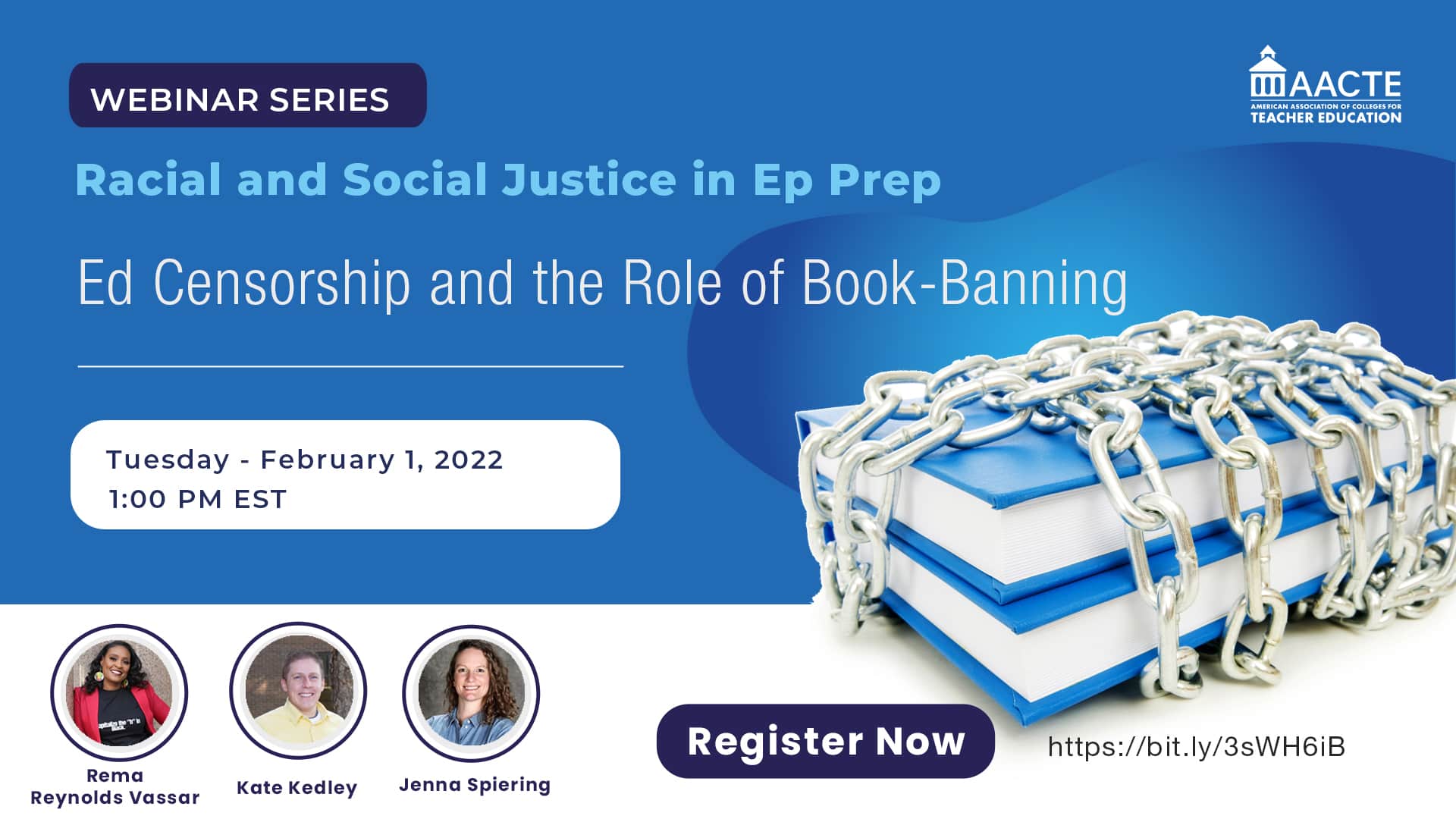 Since the historic SCOTUS ruling in 1982, Board of Education, Island Trees Union Free School District v. Pico, which ruled that school boards cannot remove books because they disagree with them, describing libraries as spaces of “voluntary inquiry,” book bans and challenges have continued. The education field is based upon the values of intellectual freedom that were upheld by this and other Supreme Court decisions; however, the executive director of the American Library Association’s Office for Intellectual Freedom recently stated in an interview, “We’re seeing an unprecedented volume of challenges.” While there is a formal “challenge” process for censoring information in libraries and curriculum, the enormous increase in political pressure has prompted some school districts to abandon their policies and begin pulling the books without undergoing this review process. As a result of not abiding by this process, which is legally reserved for challenging content that is “obscene,” books that overwhelmingly depict LGBTQ+ and BIPOC stories are removed from shelves, having been deemed “obscene” by local opinion.
Since the historic SCOTUS ruling in 1982, Board of Education, Island Trees Union Free School District v. Pico, which ruled that school boards cannot remove books because they disagree with them, describing libraries as spaces of “voluntary inquiry,” book bans and challenges have continued. The education field is based upon the values of intellectual freedom that were upheld by this and other Supreme Court decisions; however, the executive director of the American Library Association’s Office for Intellectual Freedom recently stated in an interview, “We’re seeing an unprecedented volume of challenges.” While there is a formal “challenge” process for censoring information in libraries and curriculum, the enormous increase in political pressure has prompted some school districts to abandon their policies and begin pulling the books without undergoing this review process. As a result of not abiding by this process, which is legally reserved for challenging content that is “obscene,” books that overwhelmingly depict LGBTQ+ and BIPOC stories are removed from shelves, having been deemed “obscene” by local opinion.
10 Jan2022
By Rachel Walker Bowman
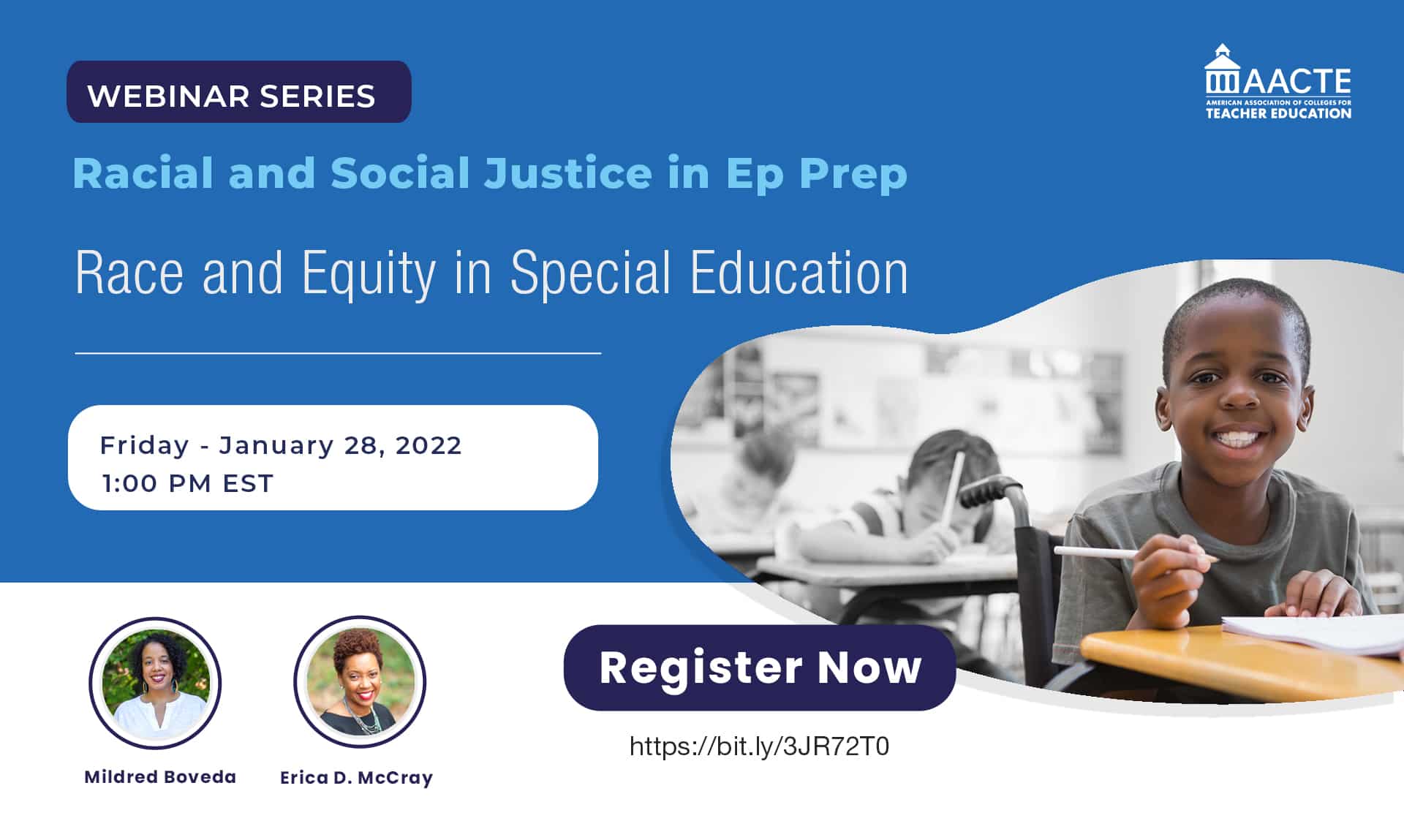
Watch the recorded session.
Conversations about race and equity are often missing from discussions of special education, particularly in teacher education. However, in a system where students of color make up half of those receiving special education services while fewer than 18% of special education teachers are people of color, race, and equity are essential topics. But are teacher educators prepared to address these issues? And how can we support teacher educators in their endeavors to do so? These are topics that panelists Erica McCray and Mildred Boveda will address in the upcoming AACTE webinar, “Race and Equity in Special Education.”
10 Jan2022
By Mary Churchill

This article originally appeared Inside Higher Education and is reprinted with permission.
In December, we were able to publish a four-episode late-fall season for our podcast “View From Venus.” We had some phenomenal women as guests: Jacqueline Rodriguez, vice president at the American Association of Colleges for Teacher Education; Shana MacDonald, faculty member at the University of Waterloo; Becky Petitt, vice chancellor at UC San Diego; and Felecia Commodore, faculty member at Old Dominion University.
We have hosted conversations with college presidents, faculty members, staff members, artists, politicians, activists and entrepreneurs—all amazing women doing great work. One goal of the podcast is to lift up, amplify and celebrate this great work and share it with a larger audience. It is also about building connections and introducing the world to these women and the differences they are making in the world.
21 Dec2021
By Nicole Dunn
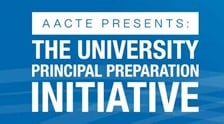 Principal preparation programs serve two major consumers: the candidate’s that enter their programs and the districts that hire them. Therefore, it is essential to align program redesign efforts to district needs, which we have learned vary across the state. In episode four of AACTE’s new University Principal Preparation Initiative (UPPI) Podcast series chronicling the Wallace Foundation multi-year principal program redesign initiative, Franciso Edobedo, superintendent of the Chula Vista Elementary School District (CVESD), located in southern San Diego County, shares what superintendents are looking for in principals and other school leaders entering the field. Also featured is Douglas Fisher, professor and chair of Educational Leadership at San Diego State University, who discusses why and how prep programs should work with districts like CVESD. Their collaboration led to various redesign improvements over the course of Wallace’s UPPI Initiative, but this episode dives deeper into how they were able to share, evaluate ,and act on data through an equitable lens.
Principal preparation programs serve two major consumers: the candidate’s that enter their programs and the districts that hire them. Therefore, it is essential to align program redesign efforts to district needs, which we have learned vary across the state. In episode four of AACTE’s new University Principal Preparation Initiative (UPPI) Podcast series chronicling the Wallace Foundation multi-year principal program redesign initiative, Franciso Edobedo, superintendent of the Chula Vista Elementary School District (CVESD), located in southern San Diego County, shares what superintendents are looking for in principals and other school leaders entering the field. Also featured is Douglas Fisher, professor and chair of Educational Leadership at San Diego State University, who discusses why and how prep programs should work with districts like CVESD. Their collaboration led to various redesign improvements over the course of Wallace’s UPPI Initiative, but this episode dives deeper into how they were able to share, evaluate ,and act on data through an equitable lens.
Listen now to Episode 4: Districts and Programs Collaborate in Commitment to Equity
03 Dec2021
By Rangasamy Ramasamy
This opinion article originally appeared in Diverse Issues in Higher Education and is reprinted with permission.
 The demographics of our nation’s PK-12 student body are changing. In fact, a report from the National Center for Educational Statistics (NCES, 2019 as cited in Burden, 2020) projects that by 2027 the Caucasian student population will decrease to 45%, Latinx student population will increase to 29%, and the African American student population will remain at 15%. Thus, tomorrow’s student body will be more diverse than today and that trend is expected to continue. To meet the needs of the future PK-12 student population, educator preparation programs (EPPs) must attract a greater number of diverse candidates to the teaching profession—and that requires advocating for policies that promote diversity in the classroom and address critical teacher shortages.
The demographics of our nation’s PK-12 student body are changing. In fact, a report from the National Center for Educational Statistics (NCES, 2019 as cited in Burden, 2020) projects that by 2027 the Caucasian student population will decrease to 45%, Latinx student population will increase to 29%, and the African American student population will remain at 15%. Thus, tomorrow’s student body will be more diverse than today and that trend is expected to continue. To meet the needs of the future PK-12 student population, educator preparation programs (EPPs) must attract a greater number of diverse candidates to the teaching profession—and that requires advocating for policies that promote diversity in the classroom and address critical teacher shortages.
02 Dec2021
By Rebekah Saylors
Appalachian State University has partnered with Winston-Salem/Forsyth County Schools (WS/FCS) as part of a five-year, $102 million initiative to prepare school principals who are capable of advancing equity in education.
The Equity-Centered Pipeline Initiative, sponsored by the Wallace Foundation, supports eight large, high-needs school districts in building evidence-based principal pipelines—with the goal of developing principals who can advance each district’s own vision of equity.
29 Nov2021
By Deirdre Smith

In a bonus episode of the Next Education Workforce podcast, former U.S. Secretary of Education John B. King, Jr. tells Brent Maddin of Arizona State University’s Mary Lou Fulton Teachers College about the impact public school had on King’s life and how his work today has been shaped by his experiences as a student, classroom teacher, civil servant and policymaker.
29 Nov2021
By UTEP
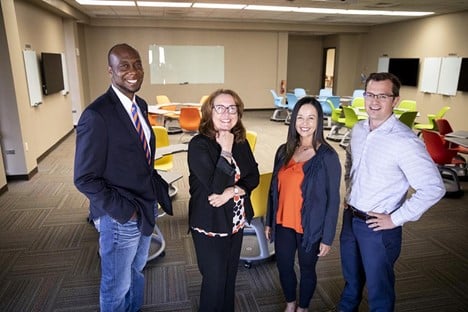
A quartet of educators from UTEP’s Department of Educational Psychology and Special Services earned a $1.1 million grant from the U.S. Department of Education to finance the education of 48 individuals who want to become K-12 counselors or special education teachers, as well as to develop technology-enhanced curricula and methods for greater collaborations. The members of Project BLESSED are, from left, Carleton Brown, Beverley Argus-Calvo, Anjanette Todd and Kristopher Yeager. Brown and Yeager are the co-principal investigators. Photo: Ivan Pierre Aguirre / UTEP Marketing and Communications
The University of Texas at El Paso is strengthening its support for school counseling and special education graduate students thanks to a five-year $1.1 million grant from The U.S. Department of Education. The award enhances the University’s ability to help these students finance their education and gives them access to enhanced technical instruction and supervision support.
24 Nov2021
By Tammy Moore
AACTE’s Consortium for Research-Based and Equitable Assessments (CREA) project recently released a framing paper titled The History, Current Use, and Impact of Entrance and Licensure Examinations Cut Scores on the Teacher-of-Color Pipeline: A Structural Racism Analysis. The paper addressed the following questions: (1) How are standardized entrance and licensure tests being used as a gateway into the profession? (2) Who determines cut scores for these tests? and (3) What is the historical significance and implications of these tests on the diversity of the profession today?
Lindenwood University represents one of fourteen lead institutions that comprise the CREA project. Tammy Moore, director of certification and field/clinical experiences at Lindenwood, reflects on the effects of entrance assessment requirements at her institution and her institution’s plans to ensure equitable access for all students who choose to pursue teacher education.
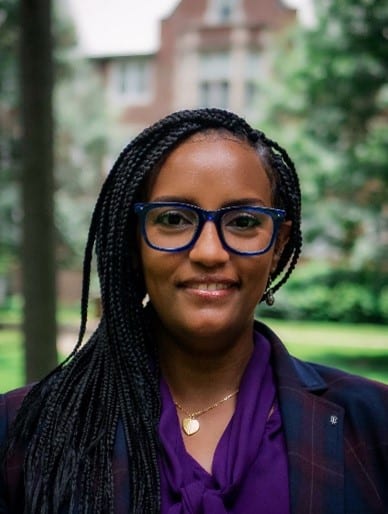 Why did Lindenwood University pursue membership in the CREA project?
Why did Lindenwood University pursue membership in the CREA project?
Lindenwood University – College of Education and Human Services (COEHS) pursued the CREA project to participate in an initiative designed to support our continual efforts to recruit and retain teacher candidates of color. In direct alignment with Lindenwood COEHS commitment to “… an open, diverse, and inclusive learning environment that nurtures the growth and development of all …” the CREA project embodies our commitment to diversifying the teaching profession.
22 Nov2021
By Nicole Geary
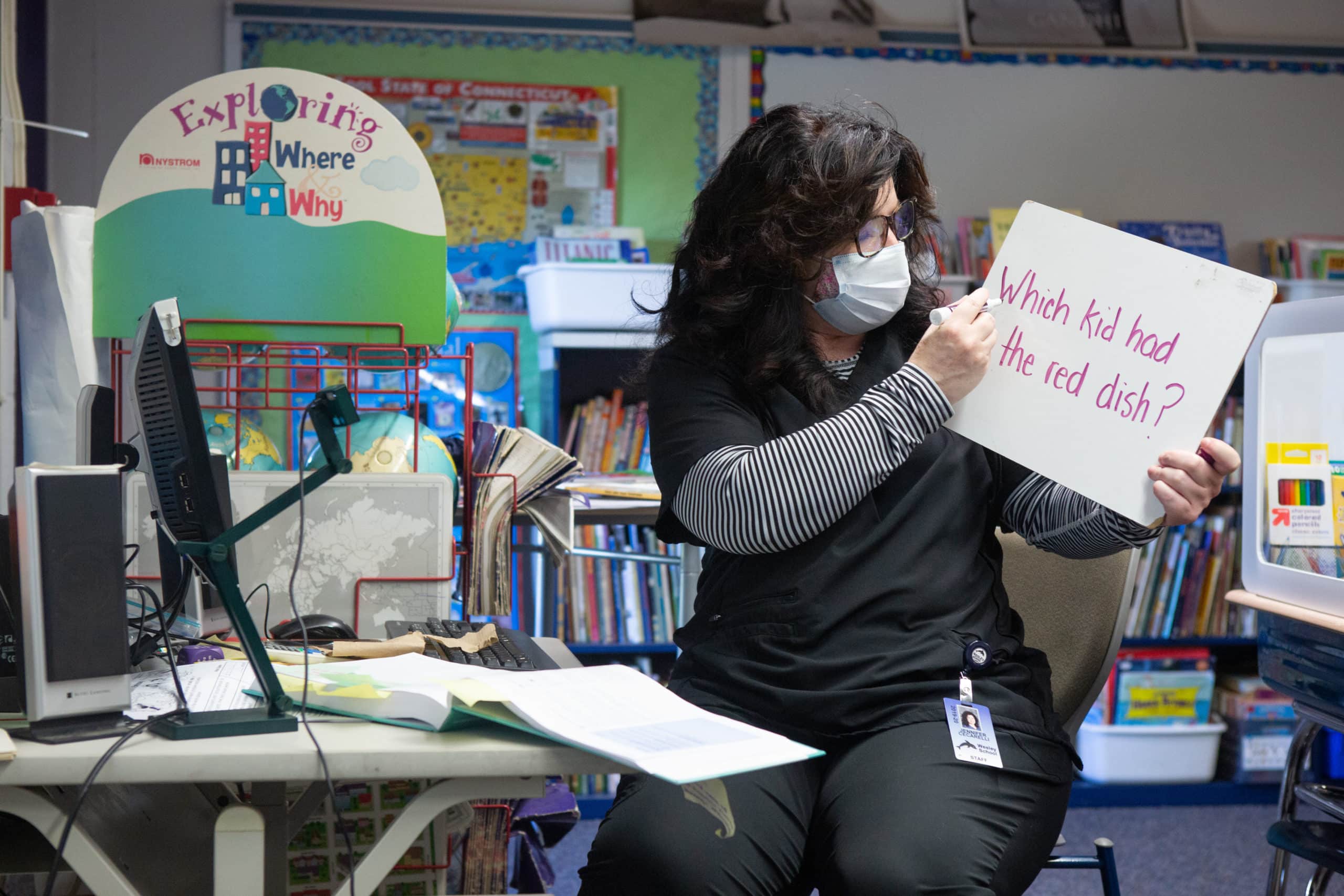
Photo by Allison Shelley for EDUimages
This article originally appeared in MSUToday and is reprinted with permission.
Students interested in becoming elementary teachers now have an exciting new pathway at Michigan State University.
Faculty in the nationally known MSU College of Education have redesigned the elementary Teacher Preparation Program to not only address changes in how Michigan certifies new teachers, but to ensure that Spartan educators are even better prepared to meet the challenges of today’s schools.
“It is important that we continue to evolve as a teacher preparation program to reflect changing times,” said Tonya Bartell, associate professor and associate director of elementary programs. “This means preparing high-quality beginning teachers ready to serve our nation’s diverse student population, including teaching English learners and students with disabilities, and serving as agents of change toward equity and social justice.”
15 Nov2021
By Stephanie Daniel
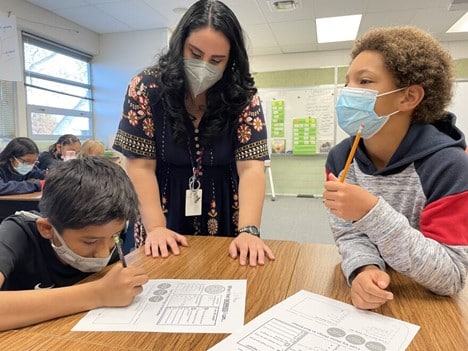 This article originally appeared on KUNC.org and is reprinted with permission.
This article originally appeared on KUNC.org and is reprinted with permission.
At East Elementary school in Littleton, a group of fifth graders is seated in a semi-circle around student teacher Stephanie Shufelt for their morning meeting.
“Yesterday we talked about resiliency. Can someone remind me of what that actually meant?” she asks.
“To keep trying,” 10-year-old Brisaida Velasco replies.
“To keep trying, right,” Shufelt says. “When tough times hit, you’re able to bounce back.”
Four days a week, time is set aside for teachers to focus on social-emotional learning and teaching students self-regulation skills. At this meeting, Shufelt discusses strategies that can help them be resilient.
15 Nov2021
By Lana Collet-Klingenberg
AACTE’s Consortium for Research-Based and Equitable Assessments (CREA) project recently released a framing paper titled The History, Current Use, and Impact of Entrance and Licensure Examinations Cut Scores on the Teacher-of-Color Pipeline: A Structural Racism Analysis. The paper addressed the following questions: (1) How are standardized entrance and licensure tests being used as a gateway into the profession? (2) Who determines cut scores for these tests?, and (3) What is the historical significance and implications of these tests on the diversity of the profession today?
University of Wisconsin-Whitewater (UWW) represents one of fourteen lead institutions that comprise the CREA project. Lana Collet-Klingenberg, professor and interim associate dean at UWW recently reflected on the effects of entrance assessment requirements at her institution and her institution’s plans to ensure equitable access for all students who choose to pursue teacher education.
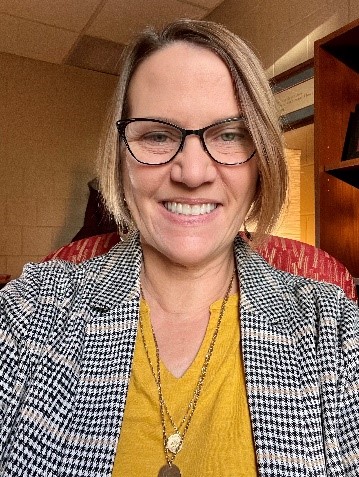 Why did University of Wisconsin – Whitewater pursue membership in the CREA project?
Why did University of Wisconsin – Whitewater pursue membership in the CREA project?
Increasing the diversity in our educator workforce is a high priority for our state and our institution. By many measures Wisconsin is failing when it comes to equity in our schools and in our educator workforce. As the EPP that prepares the most first-time licensed teachers in the state, we are interested in any initiative that advances the cause. In addition, in an effort to lessen the number of barriers for prospective teachers, our state changed rule, providing EPP with flexibility regarding what measures we use for admission. In our state, students can meet requirements with GPA OR test scores. Our state is continuing to address removal of barriers by recently changing rule again to allow for alternate measures to GPA for licensure (which, in turn, will allow greater flexibility with admission requirements). I believe our inclusion in the project is a means of sharing these avenues with states still requiring standardized test performance as the primary admission pathway.








 AACTE
AACTE 
 Since the historic SCOTUS ruling in 1982,
Since the historic SCOTUS ruling in 1982, 

 Principal preparation programs serve two major consumers: the candidate’s that enter their programs and the districts that hire them. Therefore, it is essential to align program redesign efforts to district needs, which we have learned vary across the state. In episode four of AACTE’s new University Principal Preparation Initiative (UPPI) Podcast series chronicling the Wallace Foundation multi-year principal program redesign initiative, Franciso Edobedo, superintendent of the Chula Vista Elementary School District (CVESD), located in southern San Diego County, shares what superintendents are looking for in principals and other school leaders entering the field. Also featured is Douglas Fisher, professor and chair of Educational Leadership at San Diego State University, who discusses why and how prep programs should work with districts like CVESD. Their collaboration led to various redesign improvements over the course of Wallace’s UPPI Initiative, but this episode dives deeper into how they were able to share, evaluate ,and act on data through an equitable lens.
Principal preparation programs serve two major consumers: the candidate’s that enter their programs and the districts that hire them. Therefore, it is essential to align program redesign efforts to district needs, which we have learned vary across the state. In episode four of AACTE’s new University Principal Preparation Initiative (UPPI) Podcast series chronicling the Wallace Foundation multi-year principal program redesign initiative, Franciso Edobedo, superintendent of the Chula Vista Elementary School District (CVESD), located in southern San Diego County, shares what superintendents are looking for in principals and other school leaders entering the field. Also featured is Douglas Fisher, professor and chair of Educational Leadership at San Diego State University, who discusses why and how prep programs should work with districts like CVESD. Their collaboration led to various redesign improvements over the course of Wallace’s UPPI Initiative, but this episode dives deeper into how they were able to share, evaluate ,and act on data through an equitable lens. The demographics of our nation’s PK-12 student body are changing. In fact, a
The demographics of our nation’s PK-12 student body are changing. In fact, a 

 Why did Lindenwood University pursue membership in the CREA project?
Why did Lindenwood University pursue membership in the CREA project? 
 This article originally appeared on
This article originally appeared on  Why did University of Wisconsin – Whitewater pursue membership in the CREA project?
Why did University of Wisconsin – Whitewater pursue membership in the CREA project?